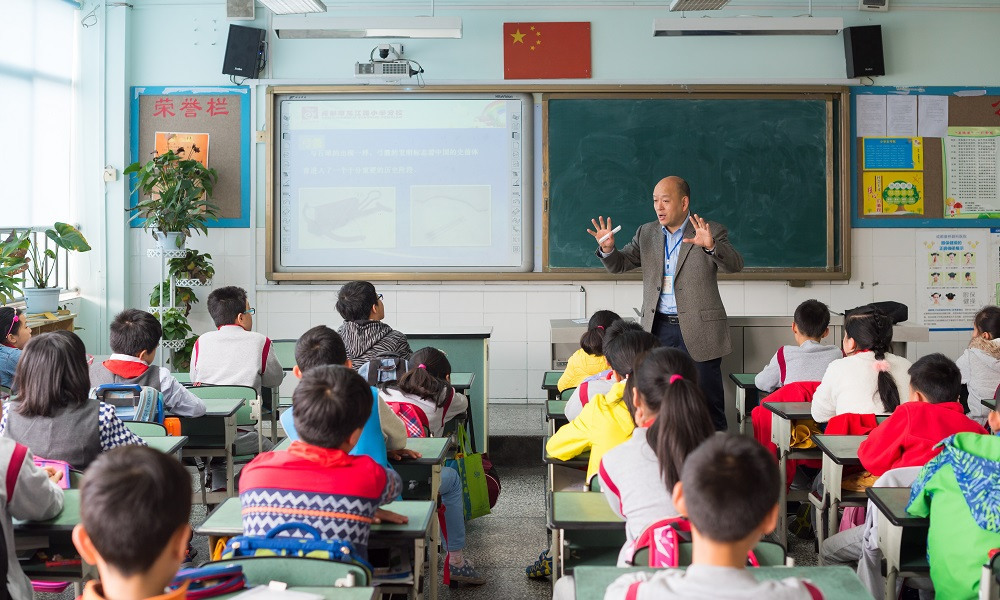Which occupation is most similar to a teacher in terms of status? Do you think students respect teachers? Would you encourage your child to become a teacher? How many hours do you think teachers work in a week? And, how much should they be paid?
These are some of the questions posed to members of the public in 35 countries to explore attitudes to teachers and teaching. Researchers wanted to build a picture of the status of the profession in different parts of the world and the link to academic outcomes for students.
The Global Teacher Status Index (GTSI) 2018 was released this month by the Varkey Foundation, five years after it first conducted the study. This time around, 14 new countries were added to the list of those surveyed. Australia was not included.
The latest rankings show overall, as in 2013, teachers in China recorded the highest status (index score of 100). Malaysia (93.3), Taiwan (70.2), Russia (65) and Indonesia (62.1) completed the top five. The countries occupying the bottom five places in the index were Argentina (23.6), Ghana (18.9), Italy (13.6), Israel (6.6) and Brazil (1). Of the 21 countries involved in both surveys, 13 recorded an increase in teacher status score for 2018.
Sharing key findings, researchers say 2018 data show a clear positive relationship between teacher status and student academic performance as measured by PISA (Programme for International Student Assessment) scores.
Ranking teachers against other occupations
In one of the questions, participants were asked to rank primary, secondary and head teachers against 11 graduate or graduate-perceived occupations, according to how they are respected in their country. The other occupations were: doctor; nurse; librarian; local government manager; social worker; website designer; policeman; engineer; lawyer; accountant; and, management consultant.
The GTSI 2018 report says the average respect ranking for a teacher across the 35 countries was seventh out of 14 professions. ‘… in the majority of countries people judged the social status of teachers to be most similar to social workers. The second closest status association was to librarians.' In China and Malaysia teachers were compared to doctors.
Within the profession, head teachers ranked higher than secondary teachers, who ranked higher than their primary counterparts. In addition to more than 1000 members of the public in each country, 200 teachers in 27 of the countries also took part in the study. In the majority of countries, teachers' impressions of their status was higher than the public's view of the status of the profession. However, the report notes: ‘There are several countries in which teachers view their own status more negatively than do the general public. These include Portugal, the USA, Hungary, Spain and France.'
Researchers found the higher the respect for teachers the more likely a person is to encourage their child to become a teacher. There were ‘significant contrasts' between countries when it came to this question. ‘While over 50 per cent of parents in China, India, Ghana and Malaysia provide positive encouragement, less than 8 per cent do so in Israel and Russia.'
Teacher pay and hours
The survey asked people to estimate how much the starting salary for a secondary teacher in their country was, then give a wage figure that they thought was fair. They were then told how much the actual wage was and asked if they thought this was fair.
‘In the majority of countries, actual teacher wages were lower than what was perceived to be fair by respondents,' the report says. ‘In South American and African countries people think teachers ought to be rewarded with fair pay that is between 40-60 per cent more ...'
Across all 35 countries, half of the survey respondents thought teachers ought to be paid according to pupil performance. Of the teachers who were surveyed, 40 per cent either strongly agreed or tended to agree that they should be paid according to pupil performance. The 2018 data show support for performance related pay fell in all countries compared to 2013, particularly in Finland, the Czech Republic, Japan, the UK and New Zealand. In the UK, 34 per cent of people supported it in 2018, compared to 74 per cent in 2013.
When it came to how long full-time teachers spend on work (including outside school on marking and planning) during term, the report says, in all countries except for Finland, Italy, Indonesia and China, the general public ‘systematically underestimates how much teachers work per week – often by more than 10 hours a week'.
Student respect for teachers
‘Across Europe there are higher levels of pessimism about students' respect for teachers than in Asia, Africa and the Middle East. In most of the European countries surveyed, more respondents thought that pupils disrespect teachers than respect them,' the report says. In China 81 per cent of people said they believed students respect teachers, compared with the global average of just 36 per cent.
Visit the Varkey Foundation website to download a copy of the full report for 2018, find key statistics from some of 35 countries involved this year and access the 2013 report.



